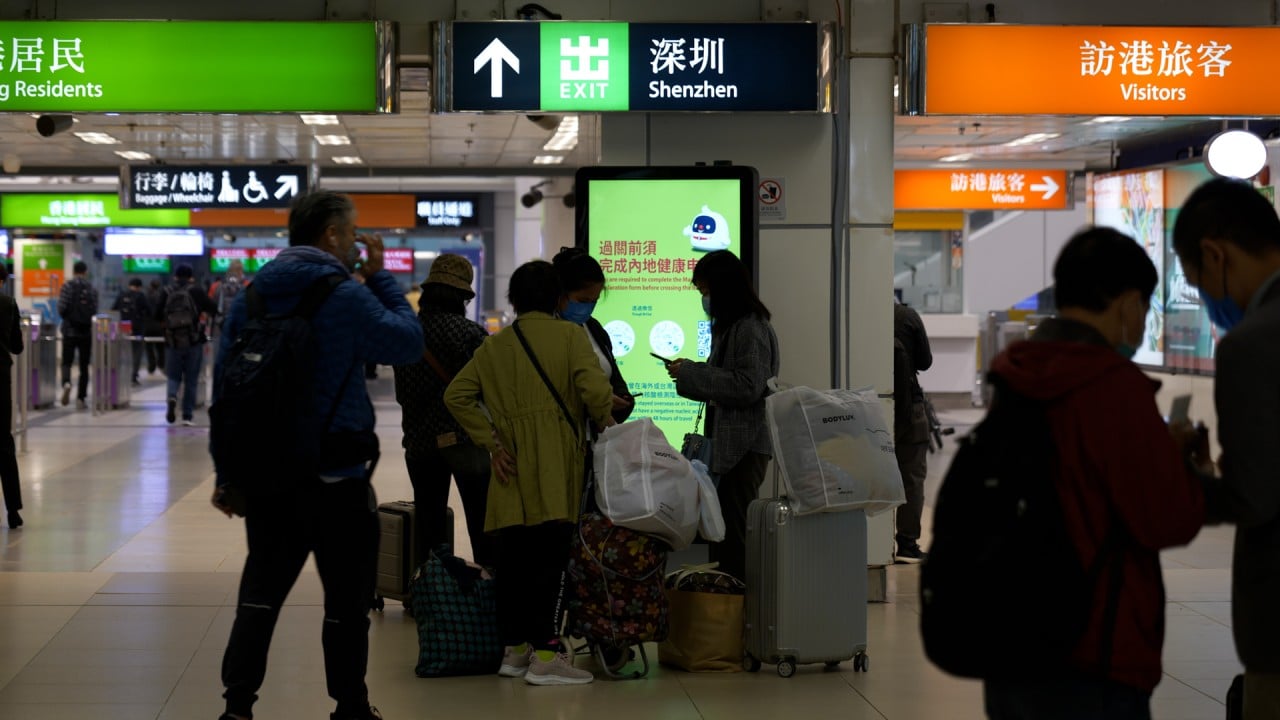
Hong Kong stocks brace for technical correction on smaller budget handouts while Baidu jumps on earnings catalyst
- Financial Secretary Chan proposed smaller cash handouts, offers property tax relief in his 2023 budget proposals
- Worries about ‘higher for longer’ US interest rates spooked global markets in overnight trading
The Hang Seng Index fell 0.5 per cent to 20,423.84 at closing of trade on Wednesday. The Tech Index declined 1.4 per cent while the Shanghai Composite Index weakened 0.9 per cent. The drop brings the city’s benchmark index to just under 10 per cent from the January 27 peak.
Carmaker BYD lost 1.3 per cent to HK$224.40 while hotpot restaurant chain Haidilao slipped 0.6 per cent to HK$19.08. Limiting losses, property developer Sun Hung Kai Properties surged 0.8 per cent to HK$111.90 while Henderson Land climbed 1.6 per cent to HK$27.90. HSBC surged 5.3 per cent to HK$60.65 as the lender signalled higher dividend payout, while its unit Hang Seng Bank added 2.7 per cent to HK$131.60.
Most Hong Kong developers advanced. Chan proposed tweaks to the city’s variable property tax regime to ease the financial burden on first-time homebuyers, a move that will cost the government HK$1.9 billion annually.
Other tax sweeteners included a reduction of profits tax in 2022-23 for small-medium enterprises, benefiting 134,000 companies, a move that will cost the government HK$720 million in income. The city is studying a proposal to keep the market running during extreme weather such as typhoons.
The local economy is forecast to expand by 3.5 per cent to 5.5 per cent this year after the border reopening with the mainland, Chan added.
The story is “not as attractive” if economic growth does not come through at the macro level, and equity market at the earnings level, Timothy Moe, a strategist at Goldman Sachs, said at a media briefing in Hong Kong. “We do need delivery of earnings” to further support stock prices, he added.
Elsewhere, Baidu jumped 1.7 per cent to HK$140.50. China’s biggest internet search engine operator may say earnings increased more than 70 per cent in the December quarter from a year earlier, according to consensus estimates. The report is due later today.
US equities slumped about 2 per cent in overnight trading with traders spooked by worries the Federal Reserve is not done with its tightening bias after recent reports showing faster than expected inflation.
Most Asian markets also weakened in tandem. The Nikkei 225 in Japan lost 1.3 per cent, South Korea’s Kospi slid 1.7 per cent and the S&P ASX 200 in Australia retreated 0.3 per cent.



